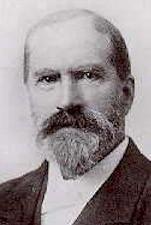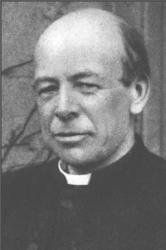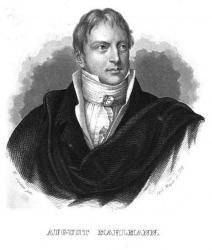Planning worship?
Check out our sister site, ZeteoSearch.org,
for 20+ additional resources related to your search.
- |
User Links
Person Results
David Grant
1833 - 1893 Topics: God in Society Sickness and Healing Arranger of "CRIMOND" in The Worshiping Church
David Grant
Michael Baughen
b. 1930 Person Name: Michael Baughen (b. 1930) Topics: The Activity of God God in human experience; The Church Celebrates National Life; Anniversaries; Jesus Word of God; Nation and Society; Word of God Composer of "LORD OF THE YEARS" in Church Hymnary (4th ed.)
Michael Baughen
H. D. Rawnsley

1851 - 1920 Person Name: Hardwicke D. Rawnsley Topics: God in Society Sickness and Healing Author of "O God, Whose Will Is Life and Good" in The Worshiping Church Rawnsley, Hardwicke Drummond, M.A., son of the Rev. R. D. B. Rawnsley, M.A., sometime Prebendary of Lincoln, was born at Shiplake-on-Thames, Sept. 28,1850, and educated at Ball. Coll., Oxford, B.A. 1875, M.A. 1883; D. 1875, P. 1877; Curate of St. Barnabas, Bristol, 1875-77; Vicar of Low Wray, Lancashire, 1878-83, and Vicar of Crosthwaite since 1883. He became Rural Dean of Keswick 1883, Hon. Canon of Carlisle 1893, and Proctor in Convocation 1905. His publications include: Notes for the Nile, 1892; Literary Associations of the English Lakes, 1894; Memoir of Harvey Goodwin, Bishop of Carlisle, 1896; Sermons on the Logia, 1897, and various books of Poems and Sonnets. The best-known of his hymns are:—
1. Hark! I hear the trumpet sounding. [Mission Hymn for Children.] In the Ch. Missionary Hymn Book, 1899.
2. Lord God, our praise we give. [In Praise of Nature]. Contributed to the 1904 ed. of Hymns Ancient & Modern.
3. Now trumpets cease your sound. [Peace.] In Hymns of the Kingdom . . . for the use of the Christian Democracy. Norwich, 1903.
4. Saviour, Who didst healing give. [St. Luke.] Written at Crosthwaite Vicarage, Dec. 1, 1905, and included in The English Hymnal 1906.
5. Lord Jesu, Who at Lazarus' tomb. [Memorial of the Dead.] Written at Crosthwaite Vicarage, Dec. 2, 1905, for The English Hymnal, 1906.
6. Lord, Who gavest streams and fountains. [For a Dual School.] Written in 1898 at Keswick for the Holiday Association of the Home Readers' Union, and included in the Keswick School Hymn Book.
--John Julian, Dictionary of Hymnology, New Supplement (1907)
H. D. Rawnsley
J. W. Elliott
1833 - 1915 Person Name: James W. Elliott Topics: God Decrees of; God Omnipotent; God Wise; Praise To God the Father In His Majesty; Scientific Societies; Wisdom of God Composer of "[CHURCH TRIUMPHANT]" in The Hymnal J.W. Elliott was a popular composer of the Victorian period, and is best known for his nursery rhyme music and for his work on hymnals in the 1870s. He was born James William Elliott, in Warwick, England, on February 13, 1833. As a child, he sang as a chorister in the Leamington Parish Church. In those days, choristers were given lessons in all facets of church music, including organ lessons, counterpoint studies, and more in exchange for providing an extraordinary level of service to their parish church (services throughout the week, all holidays, extra services, etc.). The result is that most choristers who completed their studies received an excellent music education, and James was no exception. After starting his career as an organist and choirmaster for a countryside church, his talent became obvious. He moved to London, where he assisted Sir Arthur Sullivan (of Gilbert and Sullivan fame) in editing Church Hymns. In addition, James worked for a music publisher.
His compositions include two operettas, numerous anthems, service music, works for instruments including the very popular harmonium, and most particularly for Nursery Rhymes and Nursery Songs, his children’s music score that sets many of the Nursery Rhymes to delightful music. Several of his hymn tunes are still in use today in many hymnals, most notably his hymn tune “Day of Rest.” He was heavily involved in the preparation of the musical edition of Church Hymns in 1874, the Choral Service Book of 1892, and transcriptions of hymn tunes using harmonies different than the traditional ones found in hymnals. He died in St. Marylebone, London, on February 5, 1915.
--www.nursery-songs.com/
J. W. Elliott
N. F. S. Grundtvig

1783 - 1872 Person Name: Grundtvig Topics: Sjette Søndag efter Hellig 3 Kongers Dag Til Høimesse; Sixth Sunday after Epiphany; Second Sunday in Advent; Fifth Sunday after Epiphany; Skjærtorsdag Til Aftengudstjeneste - Til Tredje Tekstrækkes Lektie; Maundy Thursday; Femte Søndag efter Paaske Til Høimesse -Til Sekund Tekstrækkes Evangelium; Fifth Sunday after Easter; Pentecost; Syttende Søndag efter Trefoldiheds Fest Til Aftengudstjeneste; Seventeenth Sunday after Trinity Sunday; Glæde og Hvile I Herren; Joy and Rest in the Lord; Menighedens Gudstjeneste; The Church Service; Helliges Samfund; Holy Society; Kirken, Guds Tempel; The Church, God's Temple; Kirken, Naademidlernes Bærer; Anden Pinsedag Til Aftengudstjeneste - Til Anden Tekstrækkes Epistel; Anden Søndag I Advent Til Aftengudstjeneste; Femte Søndag efter Hellig 3 Kongers Dag Til Aftengudstjeneste - Til Anden Tekstrækkes Epistel Alterer of "Med Straale-Krans om tinde" in Salmebog for Lutherske Kristne i Amerika Nicolai Frederik Severin Grundtvig was the son of a pastor, and was born at Udby, in Seeland, in 1783. He studied in the University of Copenhagen from 1800-1805; and, like some other eminent men, did not greatly distinguish himself; his mind was too active and his imagination too versatile to bear the restraint of the academic course. After leaving the university he took to teaching; first in Langeland, then (1808) in Copenhagen. Here he devoted his attention to poetry, literature, and Northern antiquities. In 1810 he became assistant to his father in a parish in Jutland. The sermon he preached at his ordination, on the subject "Why has the Lord's word disappeared from His house," attracted much attention, which is rarely the case with "probationers'" sermons. On his father's death, in 1813, he returned to Copenhagen, and for eight years devoted himself mainly to literature. The poetry, both secular and religious, that he produced, drew from a friend the remark that "Kingo's harp had been strung afresh." In 1821 King Frederik vi. appointed him pastor of Prasloe, a parish in Seeland, from which he was the next year removed to Copenhagen, and made chaplain of St. Saviour's church in Christianshavn. From the time of his ordination he had been deeply impressed with Evangelical church sentiments, in opposition to the fashionable Rationalism and Erastianism of the day; and adhered to the anti-rationalist teaching of Hauge, whose death at this time (1824) seemed to be a call to Grundtvig to lift up his voice. An opportunity soon presented itself; Professor Clausen brought out a book entitled Katholicismens og Protestantismens Forfatning, Ldre, og Ritus ("The condition, teaching, and ritual of Catholicism and Protestantism"). This book was replete with the Erastian Rationalism which was so especially distasteful to Grundtvig, who forthwith, in his Kirkens Gjenmsele ("The Church's Reply," 1825), strongly opposed its teaching, and laid down truer principles of Christian belief, and sounder views of the nature of the Church. This caused a sensation: Grandtvig (who had not spared his opponent) was fined 100 rixdollars, and the songs and hymns which he had written for the coming celebration of the tenth centenary of Northern Christianity were forbidden to be used. On this he resigned his post at St. Saviour's, or rather was forced to quit it by a sentence of suspension which was pronounced in 1826, and under which he was kept for 13 years. He took the opportunity of visiting England in 1829, 30, and 31, and consulting its libraries, mainly with a view to a further insight into Northern antiquities, and to help his studies in the early English tongue. His edition of Cynewulfs beautiful poem of the Phenix from the Codex Exoniensis, the Anglo-Saxon (so-called) text, with a preface in Danish, and a fri Fordanskning (free rendering in Danish), published in 1840*, is a result of this journey and enforced leisure. Tired of his long silence, his numerous friends and admirers proposed to erect a church for him, and form themselves into an independent congregation, but this was not permitted. He was allowed, however, to hold an afternoon service in the German church at Christianshavn. There ho preached for eight years, and compiled and wrote his hymn-book, Sang-Vdrk til den Danske Kirkce ("Song-work for the Danish Church"). He still worked on towards his object of raising the Christian body to which ho belonged from the condition of a mere slate establishment to the dignity of a gospel-teaching national church. In 1839 (the year of the death of King Frederik vr., and the accession of his cousin Chrisliem vni.) the suspension was removed, and he was appointed chaplain of the hospital Vartou, a position which he held till his death. In 1863 the king (Frederik vn.) conferred on him the honorary title of bishop. The good old man died suddenly, in his 89th year, on Sept. 2, 1872, having officiated the day before. As Kingo is the poet of Easter, and Brorson of Christmas, so Grundtvig is spoken of as the poet of Whitsuntide.
--John Julian, Dictionary of Hymnology,, p. 1001 (1907)
N. F. S. Grundtvig
Henry Scott Holland

1847 - 1918 Person Name: Henry Scott Holland (1847-1918) Topics: Our Response to God in intercession and petition; The Church Celebrates National Life; God in judgement and justice; Nation and Society; Word of God Author of "Judge Eternal, throned in splendor" in Church Hymnary (4th ed.) Holland, Henry Scott, D.D., son of G. H. Holland of Gayton Lodge, Wimbledon Common, was born Jan. 27, 1847, at Ledbury, Hereford, and educated at Eton and at Balliol Coll., Oxford (B.A. 1870, M.A. 1873, D.D. Aberdeen 1903). He became Senior Student of Christ Church, Oxford, in 1870, was ordained D. 1872, P. 1874, and has been Canon of St. Paul's, London, since 1884. His hymn, "Judge eternal, throned in splendour" (Prayer for the Nation), appeared in the Commonwealth for July 1902, and is in The English Hymnal, 1906, No. 423. [Rev. James Mearns, M.A.]
--John Julian, Dictionary of Hymnology, New Supplement (1907)
Henry Scott Holland
Henry Percy Smith
1825 - 1898 Person Name: H. Percy Smith Topics: God Omnipresent; Praise to God the Father in His Fatherhood; Scientific Societies Composer of "SUN OF MY SOUL" in The Hymnal Henry Percy Smith (b. Malta, 1825; d. Bournemouth, Hampshire, England, 1898) was educated at Balliol College, Oxford, England, and ordained a priest in the Church of England in 1850. He served five churches, including St. Michael's York Town in Farnborough (1851-1868), Great Barton in Suffolk (1868-1882), Christ Church in Cannes, France (1882-1892), and the Cathedral in Gibraltar (1892-1898). MARYTON is his only tune found in contemporary hymnals and is thought to be the only tune he published.
Bert Polman
Henry Percy Smith
Charles T. Brooks

1813 - 1883 Topics: God in Society National Life Translator of "God Bless Our Native Land" in The Worshiping Church Brooks, Charles Timothy. An American Unitarian Minister, born at Salem, Mass., June 20, 1813, and graduated at Harvard, 1832, and the Divinity School, Cambridge, U.S., 1835. In that year he began his ministry at Nahant, subsequently preaching at Bangor and Augusta (Maine), Windsor (Vermont). In 1837 he became pastor of Newport, Rhode Island, and retained the same charge until 1871, when he resigned through ill-health. [Rev. F. M. Bird, M.A.]
-- John Julian, Dictionary of Hymnology (1907)
================
Brooks, C. T. (p. 184, i,). He died at Newport, Rhode Island, June 14, 1883.
--John Julian, Dictionary of Hymnology, Appendix, Part II (1907)
Charles T. Brooks
Siegfried A. Mahlmann

1771 - 1826 Topics: God in Society National Life Author of "God Bless Our Native Land" in The Worshiping Church Siegfried August Mahlmann Germany 1771-1826. Born at Leipzig, Germany, he studied law at the University of Leipzig. He tutored a young nobleman and traveled with him around Europe. In 1799 he became a bookseller, writer, and editor. He bought the Junius bookshop in Leipzig in 1802. From 1806-16 he edited the journal Zeitung fur die elegante Welt (a fashionable publication), and from 1810-18 wrote for the Lipziger Zeitung newspaper. He was briefly imprisoned in 1813 by the French during the Napoleonic Wars in the fortress at Erfurt. He wrote a novel, short stories, poetry (published in 1825 and popular in his day), and a number of songs, still popular with German children. In his spare time he was a playright. His collected poems have been published several times. He later studied natural sciences and economics. He was appointed director of the Leipzig Economic Society. He also served as private counsellor to the King of Saxony and Knight of the Order of Saint Vladimir. He died at Leipzig. He wrote chamber and art music, scores, and academic theses. He was an author, librettist, lyricist, contributor, composer, correspondent, collector, and creator.
John Perry
Siegfried A. Mahlmann
Margaret Cropper
1886 - 1980 Topics: God in Society Sickness and Healing Author of "Jesus' Hands Were Kind Hands" in The Worshiping Church
Margaret Cropper


 My Starred Hymns
My Starred Hymns


